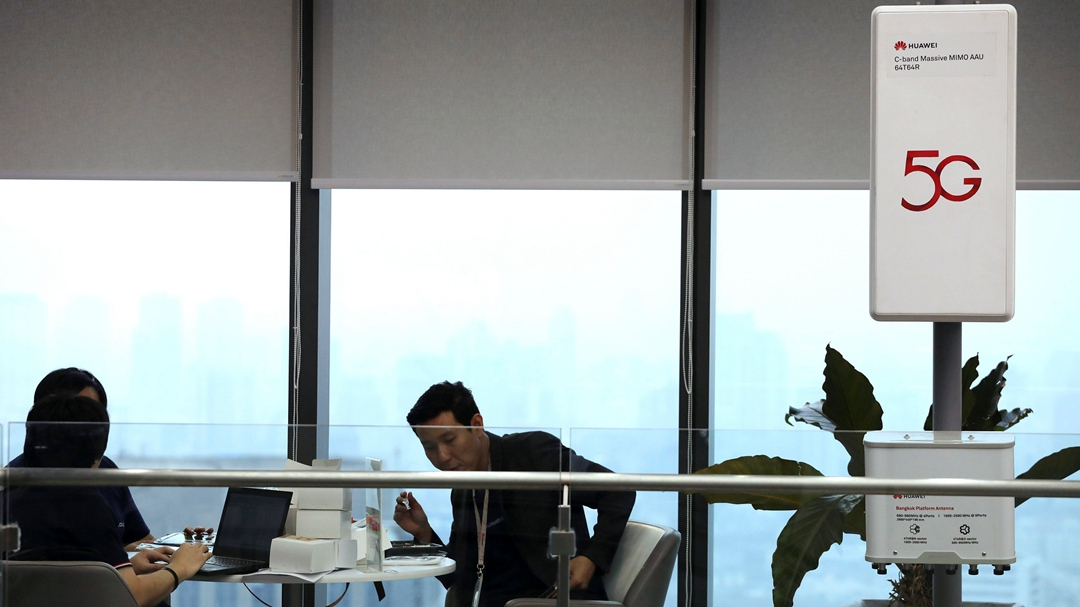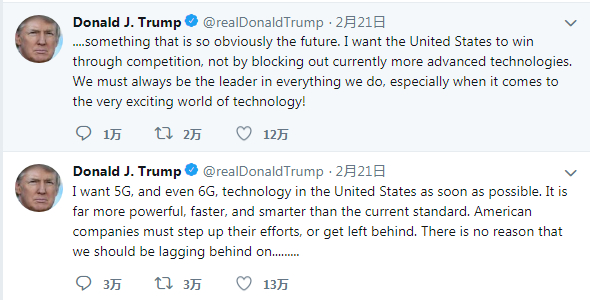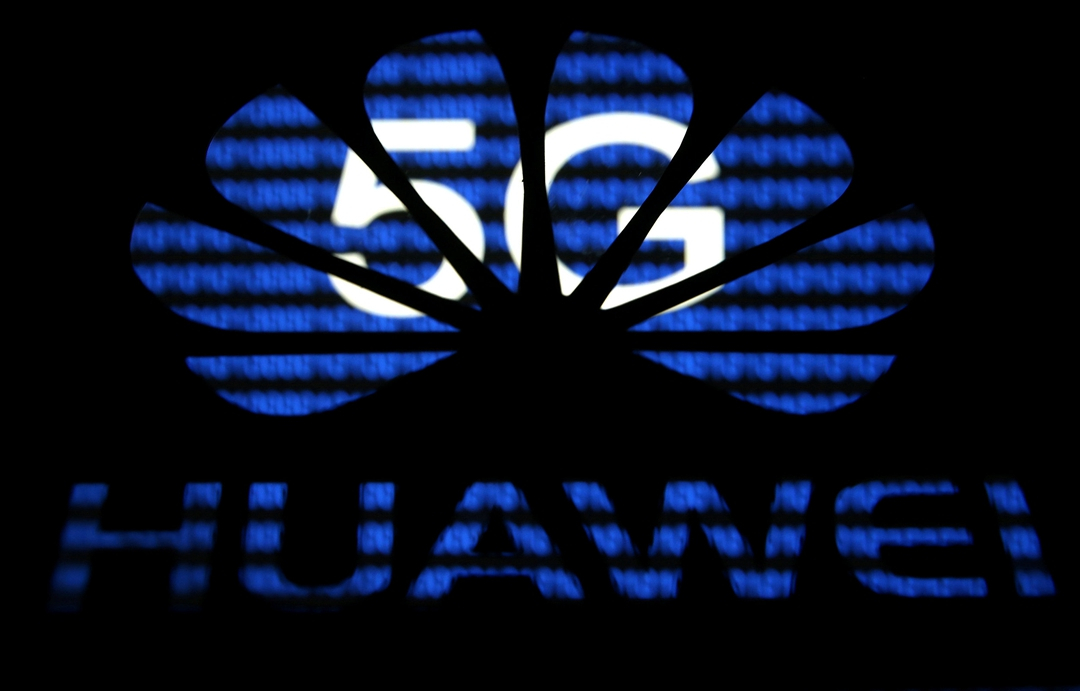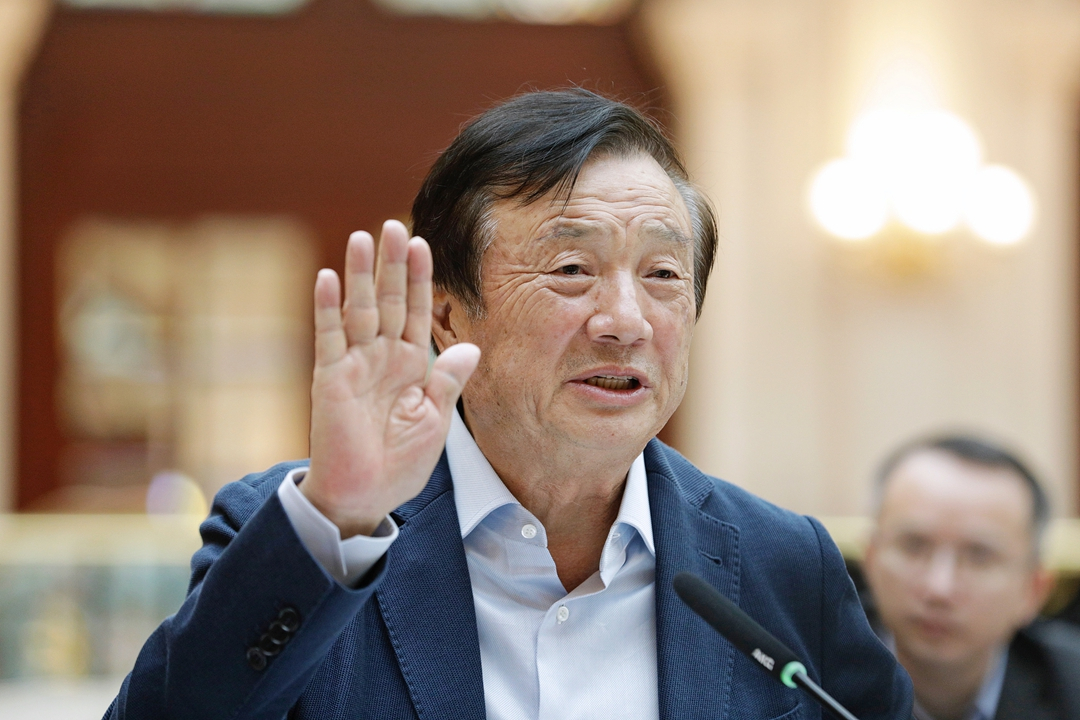
Technology
15:41, 23-Feb-2019
Trump may let Huawei in amid allies’ softened stance
Updated
19:48, 23-Feb-2019
By Cao Qingqing

U.S. President Donald Trump on Friday signaled that he may not block Chinese telecom giant Huawei, against the backdrop of key U.S. allies, including the U.K., Germany and New Zealand, all voicing a softer stance on the company.
“I don't want to artificially block people out based on excuses or based on security…I'm talking about everybody, really, (Huawei) included,” Trump said when taking a question from China Daily during a meeting with Chinese Vice-Premier Liu He and delegations attending the seventh round of U.S.-China trade talks.
Trump's remarks came one day after he hinted at a new, less-harsh stance toward Huawei. In a tweet on Thursday, he said he wanted the U.S. to “win through competition, not by blocking out currently more advanced technologies.”
“I want 5G, and even 6G, technology in the United States as soon as possible,” he wrote, noting it is “obviously the future” and “far more powerful, faster, and smarter than the current standard.” He also called on American companies to step up efforts, “or get left behind.”

Screenshot from U.S. President Donald Trump's Twitter account. /CGTN Photo
Screenshot from U.S. President Donald Trump's Twitter account. /CGTN Photo
U.S. campaign against Huawei meets reluctance among allies
Huawei, a front runner of 5G technologies, has been accused by the U.S. of posing security risks with its high-speed Internet infrastructure. And Washington has also been trying for months to persuade its allies to ban Huawei products.

A 3D printed Huawei logo is seen in front of displayed 5G words in this illustration taken February 12, 2019. /VCG Photo
A 3D printed Huawei logo is seen in front of displayed 5G words in this illustration taken February 12, 2019. /VCG Photo
However, the U.S.' push to ostracize Huawei has met reluctance from its allies, as they found no evidence that the Chinese company could use its equipment to conduct espionage, contradicting the U.S. accusations.
They also don't want to lag behind in the rollout of 5G, which is crucial to enabling a range of new services such as autonomous vehicles and high-resolution video streaming. Rejecting Huawei products will mean that they have to turn to more expensive but less competitive vendors, according to Huawei founder Ren Zhengfei.
On Tuesday, New Zealand's Prime Minister Jacinda Ardern said that Huawei has never been excluded from the construction of New Zealand's 5G network on a local talk show, "The AM Show."
On the same day, Wall Street Journal reported that the German government is also leaning toward letting Huawei in, as a recent probe by the country's cybersecurity agency, with help from the U.S. and other allies, failed to discover any indication of wrongdoing by Huawei.
Earlier, Britain's National Cyber Security Centre (NCSC), the country's intelligence agency, concluded that it can mitigate the alleged risks from using Huawei products in 5G networks, indicating it's not in a position to ban the company, according to a report by the Financial Times.
In his latest interview with CBS on Thursday, Huawei CEO Ren Zhengfei said that thanks to the Trump administration's “promotion,” Huawei is getting more contracts.

Ren Zhengfei, founder and chief executive officer of Huawei Technologies Co., speaks during an interview at the company's headquarters in Shenzhen, China, on Jan.15, 2019. /VCG Photo
Ren Zhengfei, founder and chief executive officer of Huawei Technologies Co., speaks during an interview at the company's headquarters in Shenzhen, China, on Jan.15, 2019. /VCG Photo
“5G was not known by common people. But now, these great figures are all talking about 5G… And we're becoming more influential and getting more contracts,” Ren told CBS.
Last month, the company said it had secured 30 5G commercial contracts, over 50 percent of which are in Europe.
(Top pic: A Huawei 5G device is pictured outside an exhibition in Bangkok, Thailand, January 30, 2019. /VCG Photo)

SITEMAP
Copyright © 2018 CGTN. Beijing ICP prepared NO.16065310-3
Copyright © 2018 CGTN. Beijing ICP prepared NO.16065310-3